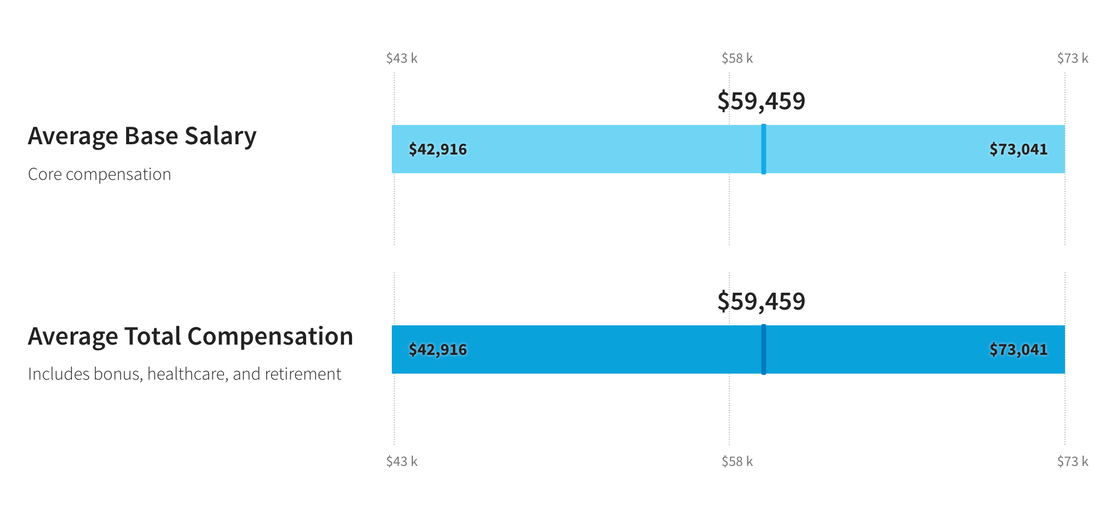
How to Become a Personal Trainer
Photo From instituteofpersonaltrainers
Originally Posted On: https://www.instituteofpersonaltrainers.com/become-a-personal-trainer.html
Introduction
What You’ll Learn
Learn what it takes to become a personal trainer in a thriving industry. Understand the physical, psychological and emotional demands of working with an extensive client base.
Why it’s Important
Aside from the Institute of Personal Trainer Code of Ethical Conduct, the fitness industry is widely unregulated. But personal training is a profession nonetheless and should be seen that way should you choose to join the industry.
To many, becoming a personal trainer is a dream career, filled with prestige, flexibility and job satisfaction. You’re helping people, every day, to optimise their health and fitness and improve the quality of their lives.
Sounds great, right? Well, it really is!
Becoming a personal trainer is a highly appealing profession to a number of people. Many individuals who enjoy working with people, remaining physically fit and helping people change their lives for the better will pursue this profession. Not to mention you can make a pretty good personal trainer salary!

However, this does not necessarily mean it is an easy career path to follow.
A personal trainer’s job is far more demanding than simply hanging out at the gym all day people watching and telling others what to do. The psychological and physical demands of personal training weed out many newcomers to the profession within the first year.
In this lesson, we’re going to start by looking at some of the pros and cons of becoming a personal trainer.
If you still decide it’s for you, keep reading, because we then lay out 7 steps on how you can become one.
Pros and Cons of Personal Training
Before embarking on your new career, let’s weigh up some of the pros and cons of becoming a personal trainer, so you can decide if it’s for you.
Our top 3 pros for becoming a personal trainer include:
- Rewarding Work
When you successfully help a client improve their health and fitness, you can often witness a full transformation of character. It’s hard to believe it when you’re just starting out, but even your clients will become amazed at what they achieve. - Flexibility
Once you have established a client base, you can more or less choose your hours, days off and holidays. Some trainers work early mornings and early afternoons, and others choose to work late afternoons to evenings. The beauty of it, is that you choose! - High Earning Potential
There is an excellent earning potential for driven personal trainers. Dependant on your location, it’s not uncommon for trainers to charge up to $100 (£70.00) per hour. This can be even more if you choose to do semi-private or boot-camp styled sessions.
3 of the main cons of becoming a personal trainer include:
- Steep learning curve
Personal training isn’t a matter of having knowledge of just training and nutrition – you really have to become a good businessperson, coach, and salesperson as well. - Uncertain income
If you take the freelance personal trainer option, there is no guarantee of income. It comes down to your ability to sell your services and retain your clients. - Draining Work
Doing back-to-back sessions sounds easy, but the reality is that the work is mentally and physically draining.
Should you do it?
With all that being said, we don’t want you to think the cons should put you off. We’ve created this guide to help you overcome some of them. Read on to find out the 7 steps to becoming a personal trainer.
Start With Why
The popular business book by Simon Sinek called “Start With Why: How Great Leaders Inspire Everyone To Take Action” encourages business owners to approach their business by answering the big question – “why?”

You’ll be putting some long hours in at the beginning, so having a “why” will help to keep you motivated.
Not only will it keep you motivated, but it will also make it much easier to sell your service to potential clients.
For many personal trainers, fitness changed their lives in such drastic ways that the natural next step was for them to inspire and coach others on making similar changes.
Once you’ve figured out your “why”, you can then figure out the “what” and the “how”. However, as Simon says, it all starts with “why”.
On the surface, personal training looks like the best job in the world for anyone interested in health and fitness.
You get to work in a gym, train when you like and talk fitness all day with your peers and clients.
While this isn’t completely untrue, there are a lot more facets to becoming a personal trainer that most people thinking about joining the industry overlook.
The Physical Demands
The physical demands of personal training can be challenging for some individuals. You might be in great shape, but you may still grow tired of the constant work required to stay in shape after a few years. Check out this video Frank Torres on his day as a trainer…
You might also experience personal injury from overexertion if you are not careful. You will often have to demonstrate exercises or do them alongside your client to keep them motivated. Pushing yourself too hard in one day with multiple clients will take its toll on your body if you are not monitoring your own activities.
Scheduled rest and proper nutrition (the same thing you advice your clients) is essential.
The Psychological Demands
The psychological demands of personal trainers are often too much for beginners to the industry; in fact, between the psychological and physical demands of the industry, most people change professions within six months to a year.
One of the great psychological challenges to overcome is the limited and potentially sporadic client base. It often takes years to develop a loyal client base and many people are not prepared for the uncertainty and commitment involved with building clients over time. If you are a good trainer who works hard and chooses a niche, you will grow your client base organically over time – but you must be patient in the meantime.
Professional Development
Other areas in which some personal trainers can struggle is always providing motivation and learning about new trends in diet and exercise. Personal trainers do not have the luxury of being unmotivated or taking a day off from exercise as they likely have at least one client most days, and if they work at a gym, they still have to get up and go to work even if they do not have any clients scheduled.
Self-motivation does not exist in everyone. In addition, personal trainers must have a passion for continued learning. You must be current on all the latest science in diet and exercise to be able to cater to each of your clients. If you do not have the motivation to remain knowledgeable and to be seen as an industry professional, your career will not last long.
It is not enough that a personal trainer learn the latest exercise trends. A personal trainer must also train in these trends to be able to properly teach their clients. This could require dozens of hours in additional workouts outside of client training sessions in order to become qualified to teach others.
If you do not take the time to learn how to do them yourself properly, you run the risk of injuring your clients by improperly executing the new exercise without professional guidance. All professions require continued training, and personal trainers are no different.
Should You Become a Personal Trainer?
Personal training can be an extremely rewarding career. Don’t rush the decision – it’s a big commitment but if you take the decision seriously, commit to lifelong self-improvement and genuinely care about helping others, you will find solemn in being a personal trainer.
Clearly, the field of personal training is not for everyone, but individuals who are able to cope with the psychological and physical demands of the personal trainer industry can be highly successful.
Those who succeed as personal trainers will have a positive energy, a drive to learn new things, an understanding of their limitations, suitable specializations and a work ethic to build and maintain their client base. Only you can decide whether you should become a personal trainer; but if these qualities describe you, you could very well make an excellent one.
